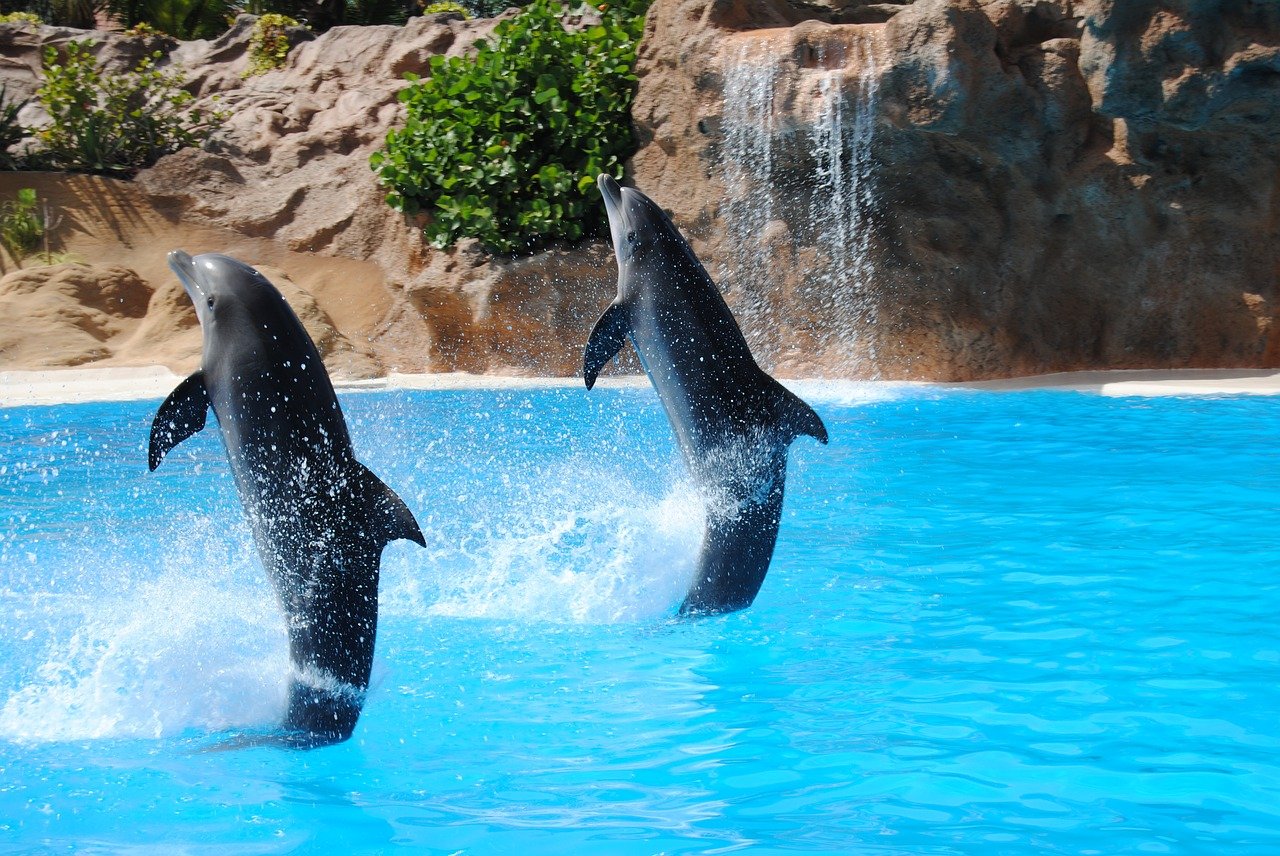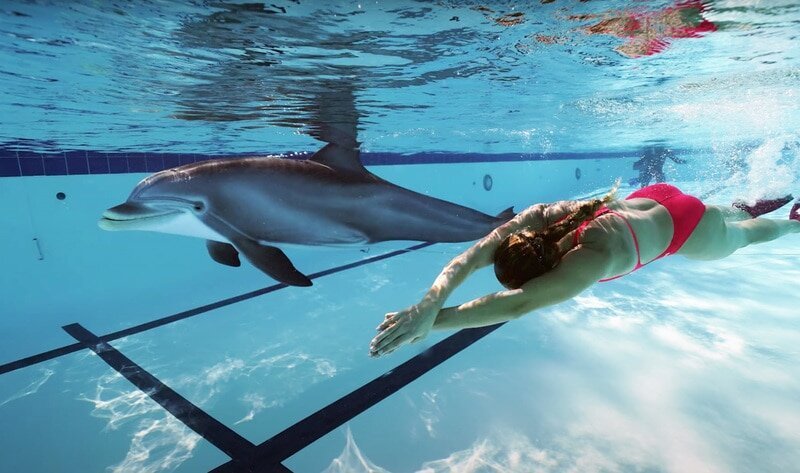Dolphin Attacks Trainer at Miami Seaquarium
Controversial Miami venue faces fresh calls to retire its dolphins to a sanctuary, in the wake of this latest incident.
A dolphin at the Miami Seaquarium has violently attacked their trainer during a performance in front of a shocked audience.
Footage of the incident posted online shows the dolphin, named Sundance, dragging their trainer underwater and repeatedly hitting them, reports CBS.
@scphoto_ky A dolphin trainer was just attacked by Flipper. Police just arrived. :( #dolphinattack #miami #seaquarium ♬ original sound - SCPhoto_KY
“One trainer that was furthest away from the video either kept getting hit by the dolphin or pulled down by the dolphin,” says Shannon Carpenter, who filmed the incident and posted it to TikTok last month.
In a statement, Miami Seaquarium officials said that the incident was a result of a trainer accidentally scratching the dolphin with her hand.
“A dolphin and trainer accidentally collided in the water on Saturday while performing a routine behavior as part of the Flipper Show,” the park said. “This was an uncomfortable interaction for both of them and the dolphin reacted by breaking away from the routine and striking the trainer.”
This incident is just the latest controversy for the Miami Seaquarium. A damning USDA investigation last year reported on the deaths of several dolphins, and noted that the animals had received an inadequate level of care.
“Time is up for the Miami Seaquarium, where long-suffering dolphins desperately need protection and workers are at risk”, says PETA’s general counsel for animal law Jared Goodman, in a statement regarding this latest incident. “PETA urges this abusement park to end its exploitation of dolphins by getting them to sanctuaries as quickly as possible, so that they’d never be used in tawdry shows again and no one else would get hurt.”
The park is also the target of a long-running campaign to free Lolita, dubbed the ‘World’s Loneliest Killer Whale’. Campaigners say Lolita, who has been Miami Seaquarium’s main attraction for the last 50 years, is held in a tiny concrete tank, displays neurotic behaviors, and hasn’t seen another orca since 1980.
Do Dolphins Have a Future in Aquariums?
Progressive marine parks are exploring new ways to create ethical and sustainable attractions that avoid using animals.
One cutting-edge technology company has even launched a particularly futuristic alternative: a hyper-realistic robotic dolphin.
The creation mimics the look and movements of its real-life counterparts and has the exciting potential to usher in a sustainable new era for animal tourism.
Edge Innovations, the company behind the groundbreaking design, say that the robots “can work all day long, don't need food and don't mind taking endless selfies with visitors. They can run for 10 hours without charging, with a 10-year lifespan living in saltwater together with live fish!”.
The robotic dolphin in action. Credit: Edge Innovations
And as Miami Seaquarium, Sea World and other marine parks face increasing criticism for continuing to subject dolphins and other marine animals to a lifetime of captivity, governments around the world are beginning to implement bans on keeping cetaceans in aquariums.
Back in 2019, Canada passed the “Free Willy bill”, which prohibits the trade, possession, capture and breeding of whales, dolphins, and porpoises. The bill effectively ended the practice of using these cetaceans for entertainment in the country.
We Have A Favor To Ask…
Species Unite amplifies well-researched solutions to some of the most abusive animal industries operating today.
At this crucial moment, with worldwide momentum for change building, it’s vital we share these animal-free solutions with the world - and we need your help.
We’re a nonprofit, and so to keep sharing these solutions, we’re relying on you - with your support, we can continue our essential work in growing a powerful community of animal advocates this year.
More stories:
Species Unite
A collection of stories of those who fight the good fight on behalf of animals.





From an owl who taught a city how to hope, to the fight to restore collapsing kelp forests, to the urgent push for justice for animals harmed by human systems - these are the stories behind Species Unite’s most listened-to podcast episodes of 2025.